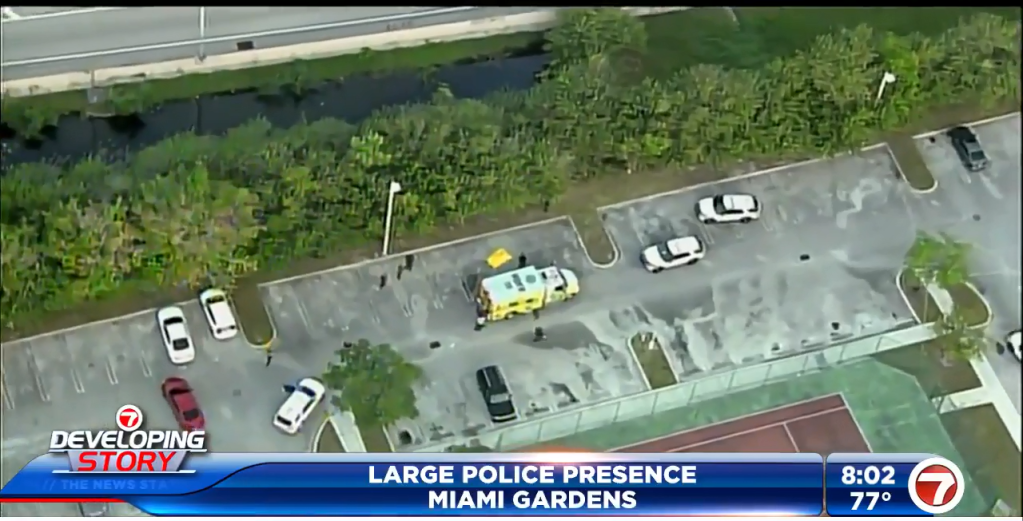What New York can learn from Miami Beach’s spring-break breakup
Opinion
Spring break in Miami Beach this year saw a notable drop in arrests, and nearly everyone in the city — save a few nightclub owners — is overjoyed by the results, writes columnist Philip Levine.
US Sun/MEGA TheMegaAgency.com
Call it the Miami Beach Miracle.
The city’s law-and-order mayor and police chief “broke up with spring break,” ending an annual reign of terror long seen as an unchangeable fact of life in the city.
Spring break in Miami Beach this year saw a notable drop in arrests, and nearly everyone in the city — save a few nightclub owners — is overjoyed by the results.
It’s a success story from the front lines of the nationwide movement to reclaim city streets from criminals.
As Mayor Adams seeks to do the same in New York, he could learn a thing or two — or three — from Miami Beach.
First, Miami Beach taught that it’s important to get the entire government on the same page.
New York voters, through polls and public outcry, are handing a mandate to city officials to solve the crime problem.
This is an opportunity for Adams to unite city leaders.
That’s what Steven Meiner, the Republican mayor of Democratic-leaning Miami Beach, did after being elected on a law-and-order platform.
Mayor Meiner rallied the city council and brought in the help of the state’s governor, Ron DeSantis.
Meiner then worked closely with the first black police chief in the history of the city, Wayne Jones, to motivate and empower police officers.
Chief Jones tells his officers they are in the business of policing behavior, not race.
Miami Beach showed that when you have a citywide mandate to toughen up on crime, you have an empowered mayor, who can then empower the police chief, who can then empower and stand beside every police officer.
This leads to the second lesson, which is that strong policing works.
New York already knows this from previous mayoral administrations.
Miami Beach took a number of measures to toughen up its policing of spring break, including increasing the number of officers with help from DeSantis — not unlike Gov. Hochul sending reinforcements to secure the subways.
Miami Beach also used license-plate readers on the causeway to monitor for stolen vehicles and DUI checkpoints in multiple areas.
It closed garages to nonresidents and imposed a midnight curfew.
Preceding these changes was a brilliant public-relations campaign that got the message out to would-be mischief makers to stay home.
The city’s viral “breaking up with spring break” social-media drive proved to be crucial to the initiative’s success and an example to other cities that publicizing anti-crime measures can be an effective deterrent.
Third and finally, Miami Beach is showing the plentiful benefits of a return to law and order.
Businesses are happy, residents are happy, and visitors are safer.
Everybody wins, not least of all Miami Beach’s brand.
Like “many other local proprietors,” The Post reported, Miami Beach restaurateur Sebastian Labno “said he was willing to suffer a short-term loss for Miami Beach’s long-term commercial viability.”
It’s hard to put a price on the investment that comes when a city is safe, from people buying homes and paying real-estate taxes, to businesses moving into the area, to developers building luxury high rises and beautiful hotels.
This is all dependent on quality of life, which is dependent on safety.
If a government and a police force can provide a safe city, the private sector will take care of the rest.
Miami Beach is sometimes called New York’s sixth borough.
If that’s true, the other five can take a cue from its success, including on the issue of homelessness.
DeSantis went to Miami Beach last week to sign a bill making it illegal to sleep on public property, effectively banning homeless camps.
I won’t hold my breath for the Big Apple to go that far, but it’s instructive nonetheless of the sea change taking place in urban centers.
Ultimately, this is about common sense — it’s about making crime illegal again and empowering police to police.
Ensuring the safety and security of residents is the single most important purpose of government.
Blue cities have found in recent years that if you fail at safety, it’s hard to succeed at anything else.
Miami Beach just taught a masterclass in turning things around.
Let’s hope New York was watching.
Philip Levine is a former two-term mayor of Miami Beach and onetime Democratic candidate for Florida governor.
Load more…
{{#isDisplay}}
{{/isDisplay}}{{#isAniviewVideo}}
{{/isAniviewVideo}}{{#isSRVideo}}
{{/isSRVideo}}



